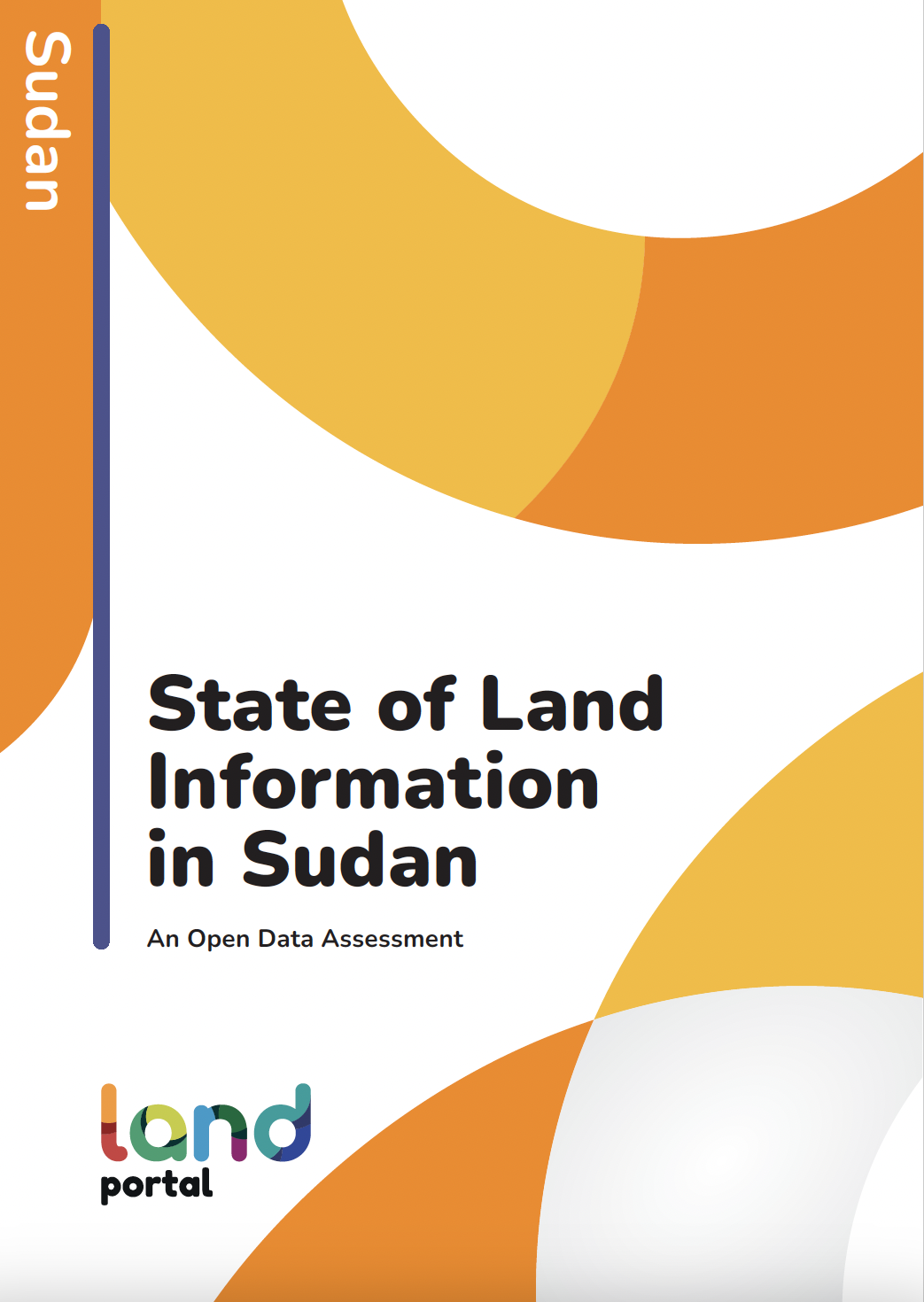Resource information
After 30 years of an authoritarian regime, Sudan reached a power-sharing deal between the military and the civilians that brought a transitional government to power in 2019. Their agenda was to lead the country towards a democratic transformation for no more than three years. This period of relative stability provided the space for democratic reform and increased transparency in Sudan, reversed by the return of political instability in 2022.
Thus, the context for opening up data in Sudan faces significant challenges in light of the current political instability in Sudan. It does, however, offer an opportunity for Sudan’s transition to civilian rule and growing support for sustainable land governance. Access to information in a more open environment can support Sudan’s civil-led transitional government to address and impact the community by collecting reliable data and conducting critical analysis. It is essential for civil society advocates to partner with the government to become more open and provide access to information.
In Sudan, access to information for land management, agriculture, the natural environment, and resource extraction as well as the provision of sanitation, water, housing, and infrastructure, is critical. In addition, managing land rights conflicts between farmers and pastoralists as well as internally displaced peoples and refugees has taken on a renewed sense of urgency considering the current conflict.
In 2011 Sudan separated into two States: the old state “Sudan,” and the new sovereign state “South Sudan.” Sudan continues to experience internal conflicts, many of which relate to the management of natural resources and land. The Sudanese government changed in 2019 amid a popular uprising and has been embroiled in a civil war since April 2023. The freedom of expression and information in Sudan is often the first casualty during armed conflict.
The government has tended towards maintaining a monopoly over information, intent on controlling the flow of information. The dominance of the Sudanese State-Owned Enterprises’ (SOEs), which are military-controlled companies that play a large role in the Sudanese economy and are involved in infrastructure development, has had an adverse impact on opening up access to information. Maintaining power over data and information is seen as crucial to secure the continued survival of the SOEs and, by extension, the governing regime.
A review of open data initiatives in developing countries from 2012 found that open data initiatives in Sudan were underway. Initiatives such as the Sudan Evidence-Base Program, developed in 2016 as a collaboration between the Ministry of Finance and Economic Planning, the United Kingdom’s Department of International Development (DFID) and the World Bank to improve the use of data for decision-making continued this development. What progress might have been made in Sudan prior to the start of the civil conflict has not been clearly determined, but with the current situation in Sudan, there are no open data portals.
Sudan does not feature in any of the following open data indices: Global Data Barometer 2022, Open Data Inventory (ODIN) (2020) and the Global Open Data Index 2016. Sudan is not assessed in the Open Data Barometer 2016 and ODIN - 2017/2018. Sudan is one of the three countries that were removed from the 2016 ODIN assessment due to non-functioning websites maintained by national statistical offices (NSOs). However, in 2018, Sudan scored 24 in ODIN, which ranked it 159th in the open data inventory. ODIN does not specifically assess land data, although it includes some indicators on the built environment and land use. Its overall score is a combination of data coverage and data openness. It scores lower than the regional and African median across three major data categories. Its statistical capacity indicator score of 66 assesses the maturity and performance of national statistical systems in five pillars: data use; services; products; sources; and infrastructure. Freedom House, which tracked online access to information in the year 2021, scored Sudan 10 out of 100, which is considered not free based on the global freedom statuses methodology.
Any progress that Sudan might have made with regard to improving access to information have been rolled back during this current conflict. It remains to be seen whether the hard-won concession to opening up access to information will be retrieved after this period of turmoil.

